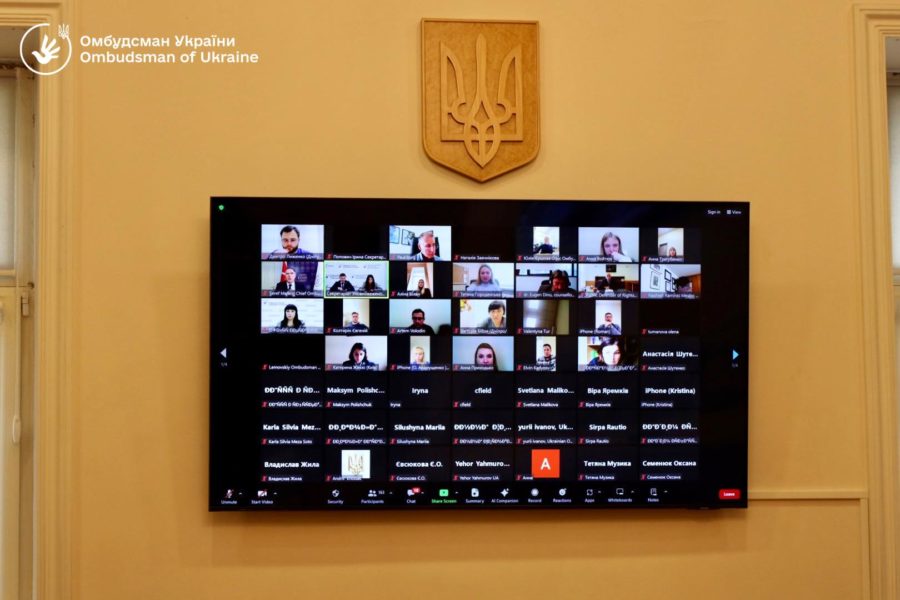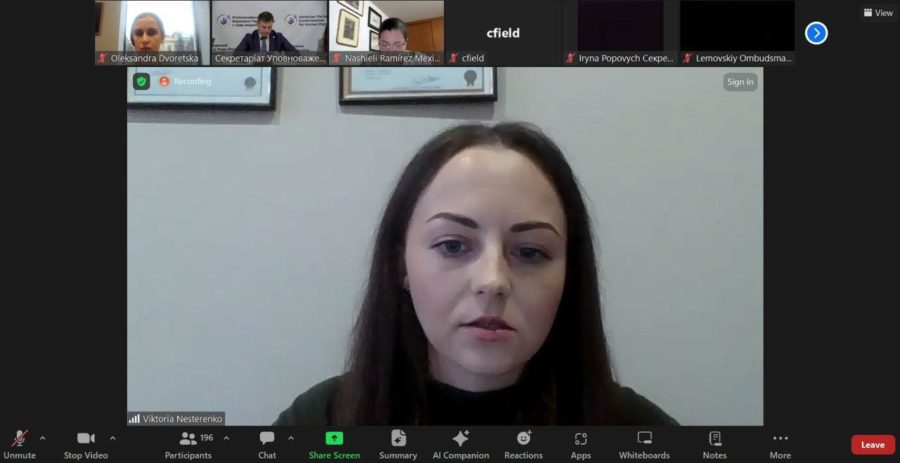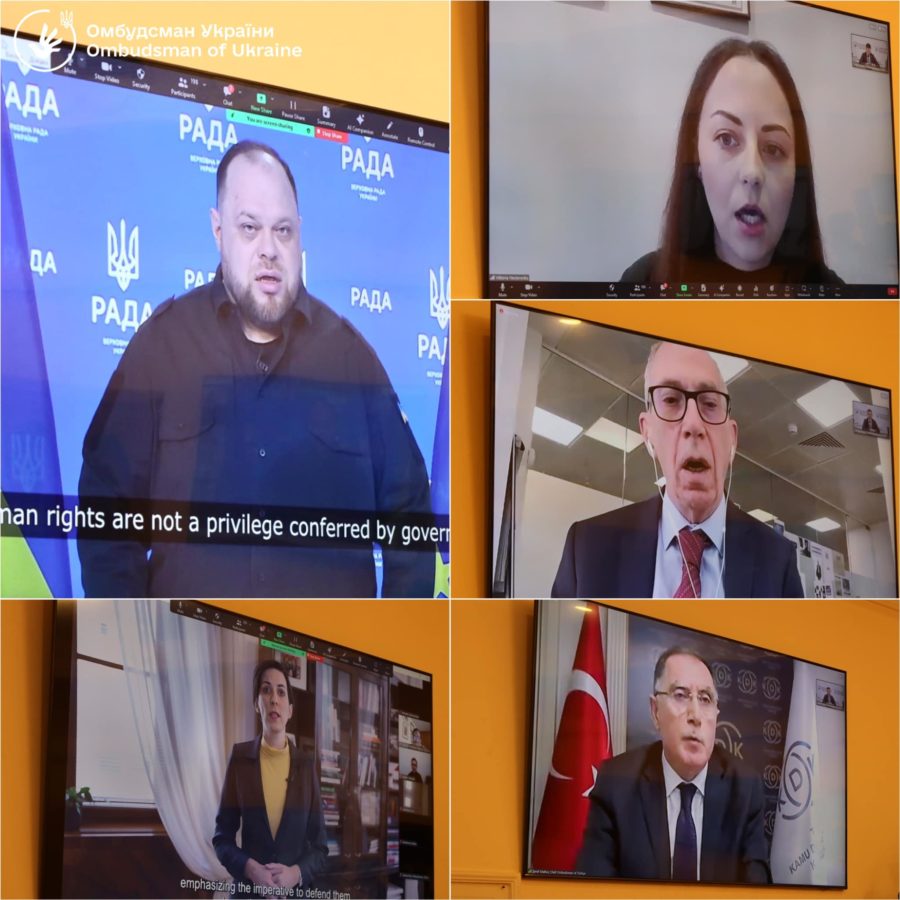ZMINA tells Ombudspersons of different countries about human rights violations in Crimea
On October 23, the event “Battle for Crimea. Battle for human rights” was held within the framework of the Second Parliamentary Summit of the Crimea Platform. It was organized by the Office of the Ukrainian Parliament Commissioner for Human Rights and the Office of the Ombudsman of the Czech Republic for Ombudspersons around the world. Representatives of more than 60 countries took part in the online conference.
 Photo: Ombudsman of Ukraine
Photo: Ombudsman of UkraineIn particular, the Ombudspersons of Ukraine, Türkiye, the UK, and the Czech Republic spoke about the deterioration of the human rights situation in Crimea. Representatives of other countries told how their states help Ukrainians abroad.
During the conference, ZMINA project manager Viktoria Nesterenko spoke about the human rights situation on the occupied peninsula.
She said that the number of cases of human rights violations in Crimea had increased several times with the beginning of the full-scale war: “In 2022, illegal mobilization, civilian hostages, physical violence for pro-Ukrainian or anti-war views, confiscation of property were added to the violations recorded after the occupation of Crimea. All this is happening against the background of war and a huge number of war crimes in the newly occupied territories, due to which the dramatic deterioration of the situation in Crimea is in the shadow of international attention.”
In the past year and a half, at least 33 cases of enforced disappearances have been recorded in the territory of Crimea, while more than half of them occurred in the spring of 2023 when security forces kidnapped several Crimean Tatars every week, Nesterenko noted.
 Photo: Viktoria Nesterenko
Photo: Viktoria NesterenkoAccording to her, after some parts of Kherson and Zaporizhzhia regions had been occupied, activists and representatives of local authorities who became victims of enforced disappearances were taken to occupied Crimea. It is known about at least 133 citizens of Ukraine from the newly occupied territories. In 82 cases, the legal status of these people has not been established.
“The trend of using torture began to gain momentum even before the full-scale invasion. Since the full-scale invasion, torture has been recorded in many cases conducted by the Crimean FSB department. Since the beginning of the war, torture has been documented against political prisoners Enver Krosh, Iryna Danylovych, Pavlo Zaporozhets, Rustem Osmanov, Kyrylo Barannyk, Ruslan Abdurakhmanov, Mykhailo Chupil, Oleksiy Kyseliov,” said the human rights activist.
Nesterenko also emphasized that the occupation authorities deliberately created inhumane conditions of detention in places of deprivation of liberty. And failure to provide medical care is a systematic policy pursued by the Russian Federation in the treatment of political prisoners and, according to international humanitarian law, it may amount to torture.

According to ZMINA data, about 50 political prisoners face the non-provision of medical care in places of detention in occupied Crimea and the Russian Federation. Twenty-one of them, who have serious chronic diseases, are elderly or people with disabilities, need urgent medical attention. In addition, over the past two months, five political prisoners whose health status is critical have been taken from occupied Crimea to penal facilities in the territory of Russia: Iryna Danylovych, Amet Suleymanov, Azamat Yeyupov, Khalil Mambetov, and Nariman Dzhelyal.
If you have found a spelling error, please, notify us by selecting that text and pressing Ctrl+Enter.















